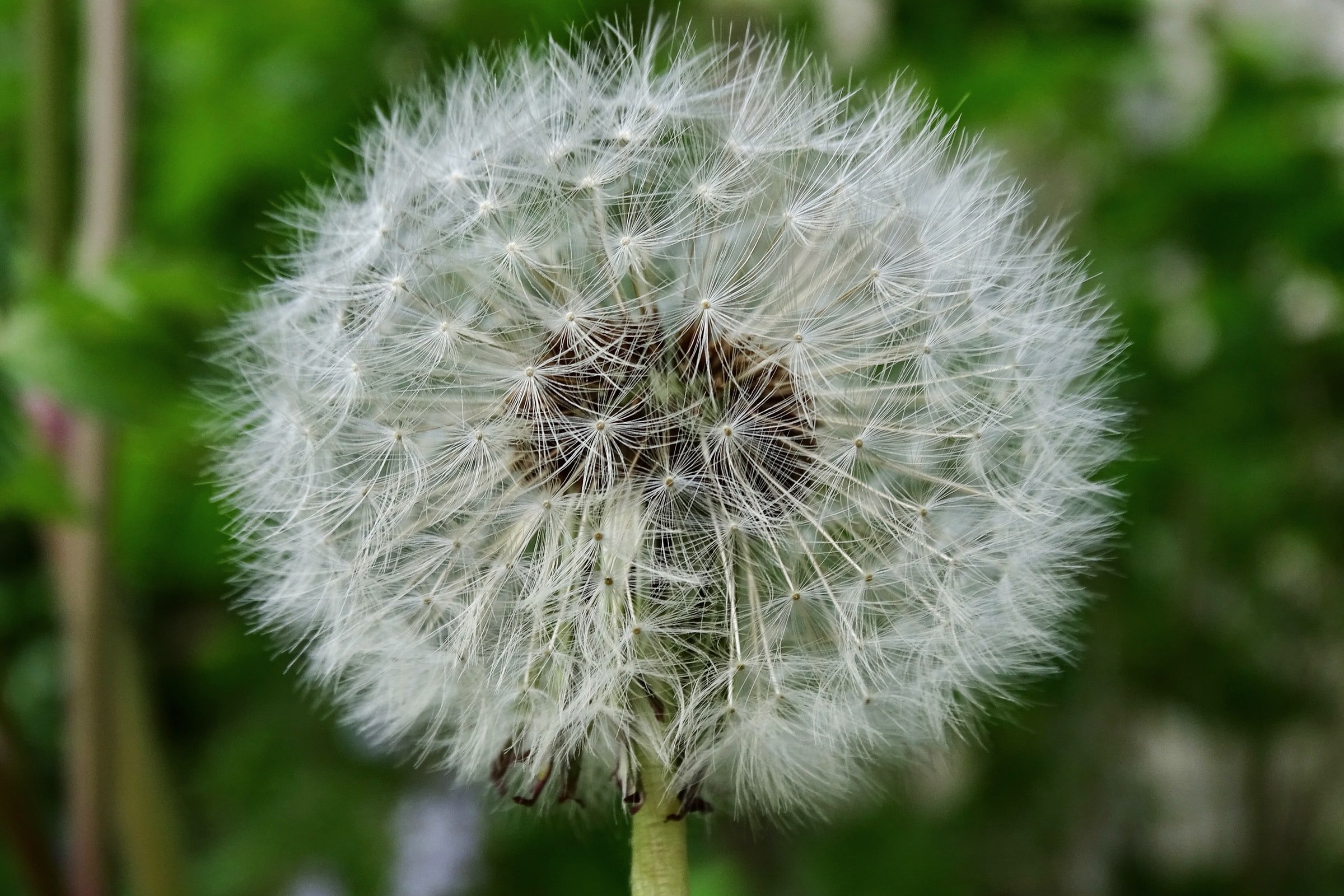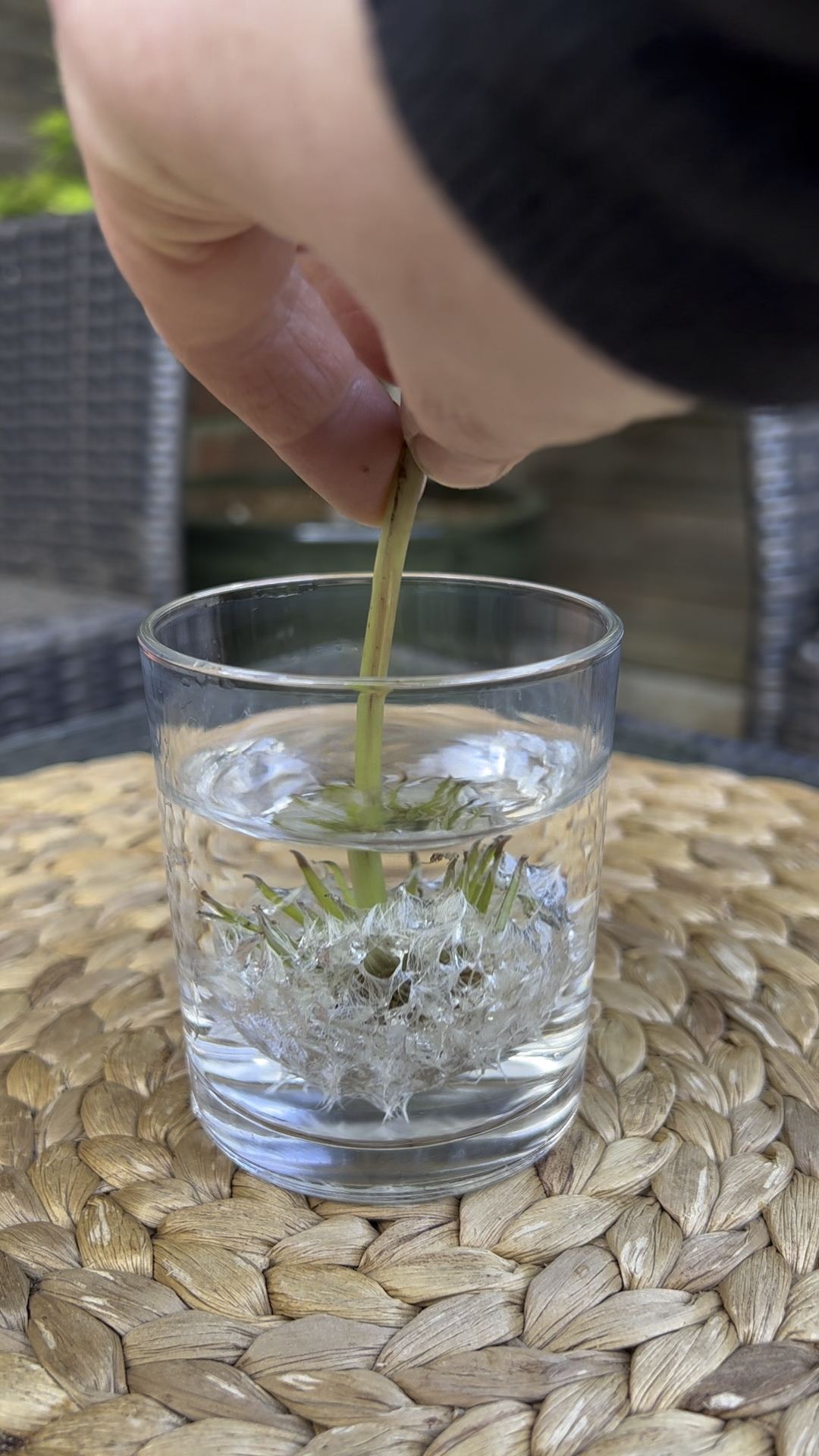What happens when you submerge a dandelion in water?
Dandelions are pretty amazing. Did you know that you can eat or drink every part of the dandelion - the flower, leaves, and root? They are incredibly hardy and can be found on every continent around the world, except Antarctica. As well as providing much-needed, cheery pops of colour in the early springtime, they also have an incredibly important role in feeding insects, birds and other animals. And when they’ve gone to seed, you can make a wish as you blow the seeds from the fluffy, white dandelion ball. Magical! Given how easy it is to blow the seeds away, you’d think the dandelion seed head is quite delicate and certainly wouldn’t survive a good dunk in a glass of water….right?
Surprisingly, no! The dandelion seed head will come out almost completely unscathed and…completely dry! Why not try this little experiment for yourself? It’s really easy to do and great to do with children. All you need is a glass of water and a dandelion that has gone to seed - also called a dandelion clock. Then you simply lower your dandelion clock into the water and watch what happens!
You can see in the photos above and the video below, that there is a layer of air around the dandelion which protects it from the water. This is because each of the dandelion seeds is attached to a pappus, which is a parachute-like structure made of around 100 fine bristles, and this structure is mostly air (92% air!). Air behaves a particular way when travelling through the bristles in the pappus: it forms a type of vortex where the air that flows through and around the pappus, is then pushed back down toward the top of the pappus, where it starts to flow back up again, creating an air bubble that sits around the pappus. It’s actually this vortex that helps the dandelion seed fly so well!
Author: Denise Hope, home educating mum of two boys








